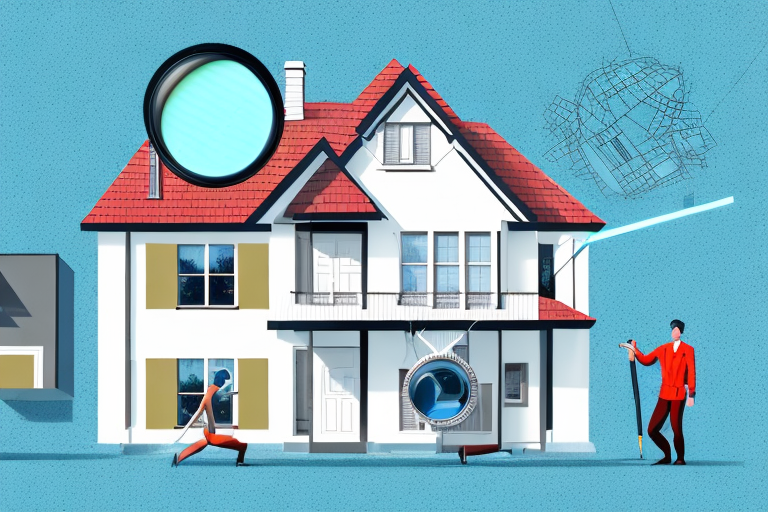In the competitive world of real estate, having someone who can advocate for your best interests as a buyer can make all the difference. This is where a buyers advocate comes in. Understanding the concept of buyers advocacy and its evolving role in real estate is essential in order to appreciate the benefits it can bring to your property transactions. Let’s delve into the definition of buyers advocacy and explore its evolution over time.
Understanding the Concept of Buyers Advocacy
Buyers advocacy refers to the professional service provided by experts who specialize in assisting buyers in real estate transactions. They act as trusted advisors, working solely in the buyer’s best interests and ensuring a fair and smooth transaction process.
Buyers advocates are highly skilled professionals who not only assist buyers in finding the right property but also guide them through the entire purchasing process. From conducting property inspections to negotiating the best price, these advocates are dedicated to ensuring that their clients make informed decisions and secure the best possible deal.
The Definition of Buyers Advocacy
A buyers advocate is a licensed professional who works exclusively for the buyer, providing expert advice and guidance throughout the property purchasing process. They are knowledgeable about the local market, property valuations, negotiation strategies, and legal requirements, which enables them to advocate effectively on behalf of their clients.
Buyers advocates go above and beyond traditional real estate agents by offering personalized services tailored to the specific needs and preferences of each buyer. Whether it’s scouting for off-market properties or conducting thorough due diligence, these advocates are committed to ensuring a seamless and successful property acquisition experience for their clients.

The Evolution of Buyers Advocacy in Real Estate
Buyers advocacy has evolved over time to meet the changing needs and demands of the real estate market. Previously, home buyers would rely solely on real estate agents who, by nature, represented the sellers. As the market became more competitive, the need for independent representation for buyers grew, resulting in the emergence of buyers advocates.
With the rise of digital platforms and increased access to property information, buyers advocates have adapted their strategies to leverage technology in their favor. They utilize advanced data analytics and market insights to identify lucrative opportunities and provide clients with a competitive edge in the fast-paced real estate landscape. Click here to learn more about leverage technology.
These professionals bring a fresh perspective to the real estate industry by acting solely on behalf of buyers, providing unbiased advice and giving buyers the confidence they need to navigate the complexities of the property market.
The Importance of Buyers Advocacy in Real Estate Transactions
Now that we understand the concept and evolution of buyers advocacy, let’s explore why it is crucial to have a buyers advocate by your side during real estate transactions. Buying a property is a significant financial decision, and having an advocate can help ensure fairness and navigate legal and financial complexities.
Buyers advocacy goes beyond just providing guidance; it offers a layer of protection and expertise that can make a substantial difference in the outcome of a real estate transaction. By having a buyers advocate on your side, you are not only gaining a knowledgeable ally but also someone who is dedicated to representing your best interests throughout the process.
Ensuring Fair Transactions
One of the primary goals of a buyers advocate is to ensure that their clients receive fair and equitable treatment throughout the property buying process. They have a deep understanding of market trends, property valuations, and negotiation strategies, which enables them to advocate effectively on behalf of their clients.
Buyers advocates work tirelessly to level the playing field between buyers and sellers, ensuring that buyers are not taken advantage of and that their rights are protected. This commitment to fairness and transparency sets buyers advocates apart as essential partners in real estate transactions.
Navigating Legal and Financial Complexities
Real estate transactions involve complex legal and financial aspects, which can be overwhelming for buyers. A buyers advocate helps simplify these complexities by providing expert guidance on legal requirements, contract terms, financial considerations, and more. They ensure that their clients are well-informed and protected throughout the entire process.
With a buyers advocate by your side, you can approach real estate transactions with confidence, knowing that you have a seasoned professional guiding you through each step. From conducting due diligence on properties to negotiating the best possible terms, buyers advocates play a crucial role in ensuring a smooth and successful buying experience.
The Responsibilities of a Buyers Advocate
Now that we recognize the importance of buyers advocacy, it is essential to understand the specific responsibilities that a buyers advocate takes on when working on your behalf. Let’s explore two key responsibilities: property search and evaluation, and negotiation and bidding.
Buyers advocates play a crucial role in the real estate market, acting as trusted advisors who guide clients through the complex process of buying property. In addition to their expertise in the field, they bring a deep understanding of market trends, property values, and negotiation strategies to the table. By enlisting the services of a buyers advocate, clients can navigate the competitive real estate landscape with confidence and peace of mind.
Property Search and Evaluation
A buyers advocate conducts extensive research and analysis to identify properties that align with your specific needs and preferences. They have access to a wide range of tools and resources, including off-market properties, enabling them to provide you with a comprehensive list of potential options. Once potential properties are identified, they evaluate them thoroughly, considering factors such as market value, location, condition, and potential for growth.
Furthermore, buyers advocates go beyond just identifying suitable properties; they also assess the long-term potential and risks associated with each property. By conducting thorough due diligence and market analysis, they ensure that clients make informed decisions that align with their investment goals and financial capabilities. This meticulous approach sets buyers advocates apart as invaluable partners in the property acquisition process.
Negotiation and Bidding
Negotiation is a critical phase in any real estate transaction. Buyers advocates are skilled negotiators who work tirelessly to secure the best possible deal for their clients. They leverage their knowledge of market conditions, comparable sales, and the strategic use of various negotiation techniques to advocate effectively for their clients’ interests. Additionally, they assist with the bidding process, ensuring that clients do not overpay for properties. Learn more about negotiation techniques at https://www.pon.harvard.edu/freemium/negotiation-skills-negotiation-strategies-and-negotiation-techniques-to-help-you-become-a-better-negotiator/
Moreover, buyers advocates bring a level of objectivity to negotiations that can be challenging for individual buyers to maintain. By acting as a buffer between clients and sellers, they help to keep emotions in check and focus on achieving the most favorable terms for their clients. This ability to navigate complex negotiations with professionalism and finesse is a hallmark of buyers advocates’ commitment to delivering exceptional service and results.
The Benefits of Hiring a Buyers Advocate
Now that we understand the responsibilities of a buyers advocate, let’s explore the benefits of hiring one for your real estate transactions. Hiring a buyers advocate can save you time, reduce stress, and provide access to off-market properties.

Saving Time and Reducing Stress
Searching for the perfect property is a time-consuming and stressful process. A buyers advocate takes on the burden of this task, allowing you to focus on other aspects of your life. They understand your needs and preferences, streamlining the search process and presenting you with options that meet your criteria. Their expertise and industry knowledge save you valuable time and minimize stress.
Moreover, buyers advocates often have established relationships with real estate agents, which can give you a competitive edge in a fast-paced market. They can help you navigate through the complexities of negotiations, contracts, and inspections, ensuring a smoother and less stressful buying experience.
Access to Off-Market Properties
Some of the best properties may not be advertised publically. Buyers advocates have access to a wide network of industry contacts and resources, including off-market properties. This gives you an advantage in finding properties that may not be available to the general public.
Additionally, buyers advocates have a keen eye for spotting potential in properties that may not be immediately apparent. They can identify opportunities for value-add improvements or future growth potential, helping you make informed decisions that align with your long-term real estate goals.
Selecting the Right Buyers Advocate
Now that you are convinced of the benefits of hiring a buyers advocate, it is important to know how to select the right advocate for your needs. Look for specific qualifications and ask potential advocates the right questions to ensure a good fit.
When it comes to choosing a buyers advocate, the process can be daunting but rewarding. One key factor to consider is the advocate’s specialization in certain types of properties or locations. Some advocates may have expertise in residential properties, while others may excel in commercial real estate. Understanding their niche can help you determine if they are the right fit for your specific needs.
Qualifications to Look For
When selecting a buyers advocate, consider factors such as their industry experience, qualifications, and reputation. Look for advocates who are licensed professionals, members of relevant industry associations, and who have a proven track record of success. This will ensure that you are working with a knowledgeable and competent advocate.
Furthermore, it’s essential to delve into the advocate’s network and connections within the real estate industry. A well-connected advocate can provide you with access to off-market properties and valuable insights that may not be available to the general public. Their ability to leverage these connections can give you a competitive edge in the property market.
Questions to Ask Potential Advocates
During the selection process, ask potential buyers advocates about their approach, experience, and client testimonials. Inquire about their understanding of your specific needs and how they plan to address them. This will help you gauge their expertise and determine if they are the right fit for you.
Additionally, don’t hesitate to inquire about their negotiation strategies and how they handle challenging situations. A skilled advocate should be able to navigate complex negotiations with ease, ensuring that your best interests are always protected. By understanding their approach to negotiation, you can assess if they have the skills necessary to secure the best possible deal on your behalf.
In Conclusion
Buyers advocacy plays a vital role in real estate transactions, ensuring that buyers receive fair treatment and have access to professional guidance. By hiring a buyers advocate, you can save time, reduce stress, and gain access to a wider range of properties. Remember to carefully evaluate potential advocates and ask the necessary questions to find the right professional to advocate for your best interests. Real estate transactions can be complex, but with the support of a buyers advocate, you can navigate the process with ease and confidence.
Learn more about Finding the Best Buyers Agent in Sydney Tips and Advice on https://hugproperty.com/finding-the-best-buyers-agent-in-sydney-tips-and-advice/








